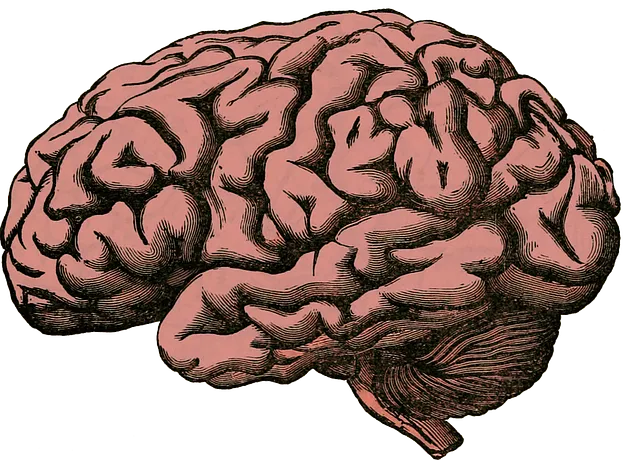Kaiser's Mental Wellness Coaching Programs in Longmont offer a tailored, supportive approach to improving emotional well-being. Combining evidence-based techniques, cultural competency training, and personalized goal setting, these programs effectively address stress, anxiety, and depression while fostering resilience and strong relationships. Their innovative integration within primary care, coupled with continuous evaluation through data-driven feedback loops and public awareness campaigns, makes Kaiser a leading choice for Longmont residents seeking excellent mental health services.
Mental wellness coaching programs are gaining prominence as essential tools for promoting overall well-being. This article explores the development of such programs, with a focus on understanding their role and benefits, designing effective strategies, and evaluating continuous improvement. We delve into a case study of Kaiser’s approach in Longmont, showcasing successful integration of mental health services. By examining these aspects, we aim to provide insights into creating impactful coaching programs that enhance mental wellness, especially in communities like Longmont where access to quality care is crucial.
- Understanding Mental Wellness Coaching: Defining the Role and Benefits
- Designing Effective Programs: Key Components for Success
- Kaiser's Approach in Longmont: A Case Study on Integrating Mental Health Services
- Implementing and Evaluating: Strategies for Continuous Improvement
Understanding Mental Wellness Coaching: Defining the Role and Benefits

Mental wellness coaching is a supportive process that empowers individuals to improve their emotional well-being and overall mental health. This approach focuses on developing coping strategies, fostering self-awareness, and promoting positive mental health practices. Coaches work collaboratively with clients to set personalized goals, navigate challenges, and cultivate resilience. By integrating evidence-based techniques, such as cognitive-behavioral strategies and mindfulness practices, coaches help individuals enhance their emotional regulation skills.
In Longmont, Kaiser’s comprehensive healthcare services offer excellent opportunities for mental wellness coaching. Their programs prioritize individual growth and self-care, making them ideal for those seeking support in managing stress, anxiety, or depression. Additionally, Kaiser provides Healthcare Provider Cultural Competency Training to ensure professionals can address diverse client needs effectively. Social Skills Training is another valuable component, helping individuals develop the interpersonal skills crucial for maintaining strong relationships and fostering a sense of belonging.
Designing Effective Programs: Key Components for Success

When designing effective Mental Wellness Coaching Programs, several key components stand out for success, especially in a place like Longmont where Kaiser offers excellent mental health services. First and foremost, programs should be tailored to meet the unique needs of individuals. This personalized approach ensures that coaching is relevant and impactful, addressing specific challenges related to stress management, anxiety, or depression. Incorporating evidence-based practices, such as Compassion Cultivation Practices, can significantly enhance program effectiveness. Research has shown these techniques improve mental health outcomes and foster a sense of well-being.
Additionally, creating a supportive environment where participants feel safe to explore their thoughts and emotions is vital. Mental wellness coaches play a crucial role in guiding individuals through this process, offering non-judgmental support and encouragement. Regular check-ins, structured goals, and progress tracking also contribute to success. By combining these elements, Mental Wellness Coaching Programs Development can create a powerful tool for improving Mental Health Awareness and transforming lives, as evidenced by the positive impact seen in many Kaiser Longmont clients.
Kaiser's Approach in Longmont: A Case Study on Integrating Mental Health Services

In Longmont, Kaiser’s mental wellness coaching programs have gained recognition for their innovative approach to integrating mental health services within a primary care setting. This case study highlights how Kaiser’s strategies can be particularly beneficial for individuals seeking holistic support. By combining evidence-based practices with a patient-centered focus, Kaiser fosters an environment conducive to healing and growth.
One key aspect of Kaiser’s success lies in their Compassion Cultivation Practices, which teach individuals how to cultivate empathy, kindness, and self-compassion. Additionally, the programs emphasize Emotional Intelligence, empowering patients to recognize and manage their emotions effectively. These strategies not only boost confidence but also provide practical tools for navigating daily challenges, making Longmont’s Kaiser a go-to option for those prioritizing their mental wellness.
Implementing and Evaluating: Strategies for Continuous Improvement

Implementing and evaluating mental wellness coaching programs is a continuous journey toward improvement. At Kaiser in Longmont, strategies like regular feedback mechanisms from both coaches and clients play a pivotal role. This data-driven approach allows for adjustments to be made, ensuring the program aligns with the evolving needs of participants. For instance, integrating Mental Wellness Journaling Exercises into sessions can offer valuable insights into individuals’ progress and areas requiring additional guidance.
Furthermore, evaluating the program’s impact extends beyond individual experiences. Public Awareness Campaigns Development around mental health can be leveraged to assess societal shifts in attitudes and behaviors related to seeking support. By combining these evaluation methods—including client satisfaction surveys, outcome measurements, and community feedback—Kaiser in Longmont ensures its mental wellness coaching programs remain effective and relevant, ultimately fostering better mental health outcomes for all.
Mental wellness coaching programs, like Kaiser’s successful initiative in Longmont, demonstrate the power of integrated mental health services. By combining traditional medical care with personalized coaching, these programs offer a holistic approach to improving mental well-being. As we move forward, understanding and adopting key components for success, as outlined in this article, can help organizations develop effective wellness coaches that make a tangible difference in individuals’ lives, especially in communities like Longmont where access to quality mental health care is vital.






